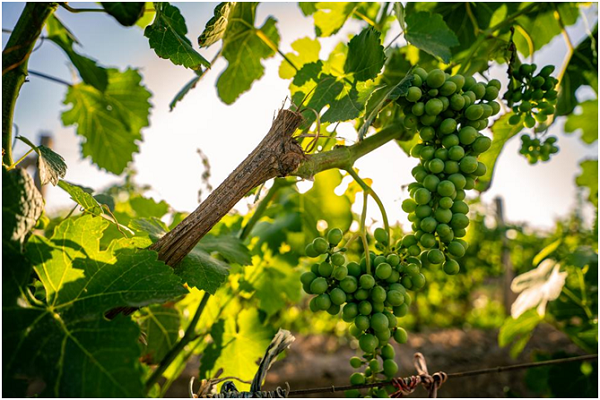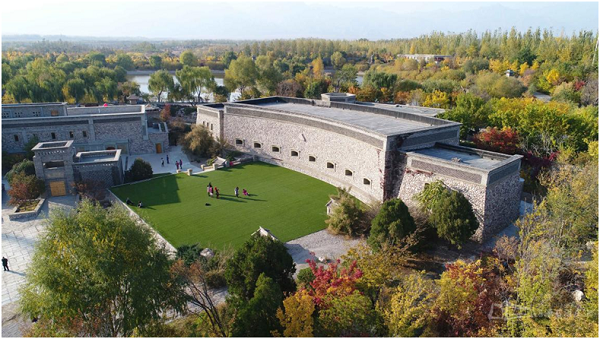Helan Mountain is recognized as a golden zone for wine grape cultivation in the world. Over the past 10 years, well-known Chinese wineries and internationally renowned wine producers, such as Pernod Ricard and Hennessy, have settled here. Wines produced in the region have been exported to more than 30 countries and regions worldwide, including France, Germany and Spain.

The grapes cultivated in Yinchuan, Ningxia [Photo provided to seeningxia.com]
As of the end of 2022, the total area of the wine grape planting base in Yinchuan, Ningxia, has reached 262,000 mu. A total of 66 wineries have been built and put into operation, with a production capacity of 54,000 tons (70 million bottles) of raw wine. The local wineries receive 1 million wine tourists annually, and the comprehensive industrial output value reached 26 billion yuan (about $3.78 billion).
"We strive to achieve a total area of over 270,000 mu of high-quality wine grape planting bases in Yinchuan by 2023, with over 70 wineries (enterprises) having completed construction and been put into operation, with a production capacity of 58,000 tons (75 million bottles) of raw wine, a tourism reception capacity of over 1.2 million people, and a comprehensive output value of 30 billion yuan," said the person in charge of the Yinchuan Wine Development Service Center.

Yuanshi Vineyard in Yinchuan, Ningxia [Photo provided to seeningxia.com]
At present, Yinchuan has completed and improved its online and offline wine marketing system, and established the first VR live exhibition hall platform of wine producing areas in China and the first wine digital service platform in the region. At the same time, Yinchuan has also actively explored new technologies and models for ecological governance to promote the resource utilization of branches, leaves and waste, introduced foreign experts and innovative and entrepreneurial talents to carry out training for industrial talents, increased investment attraction across the industrial chain, and actively introduced related enterprises in grape planting, brewing equipment, and wine packaging, in a bid to inject new impetus into the local wine industry.